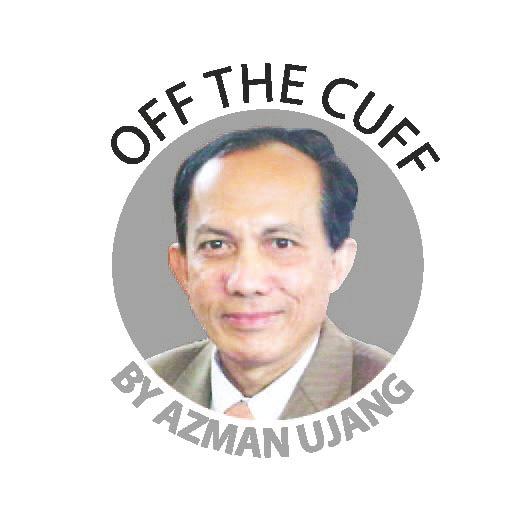IF there’s anything that Malaysians especially in urban areas take too much for granted, it’s certainly their water supply.
Life’s most vital resource – water is in fact life – is all too often the most undervalued and under-priced as a commodity to consumers even when much of the world is facing an acute shortage.
Cape Town in South Africa almost became the first major city in the modern era to run out of water in a crisis that started in 2005 due to poor planning and crisis management.
It was also hit by three years of drought and high per capita water usage but had the entire city not banded together in a concerted effort to avert the crisis, what Cape Town residents named as Day Zero when the municipal water would be completely shut off would have happened.
Fortunately, the day never came to pass but if it had, residents would have to queue for their daily ration of 25 litres of water a day. To put it into context, just one minute in the shower can use up to 15 litres of water.
I have been writing relentlessly for nearly nine years (since starting this column) on the water issue as it is closest to my heart. Life would still be tolerable if we ran out of other things but certainly not the most basic – water.
My very first column in 2011 was on water, too, including being critical about the free water policy in Selangor, Malaysia’s most populous and industrialised state where this precious resource has been provided free since 2008 for the first 20 cu m of consumption regardlless of whether the consumer is a pauper or a multi-millionaire.
Just imagine 20 cu m of water is equivalent to 40,000 bottles of 500ml each given free.
Which is perhaps why there’s a thriving business in the reverse osmosis or RO water sold in the market for about RM1 each.
It’s to me the most ridiculous policy ever to have been implemented in the country simply because the state government has had to fork out billions since then to pay the water concessionaires which supply, treat and distribute the water.
Had there not been this free water policy, the billions spent so far could have gone into operating industries that would create tens of thousands of new jobs while at the same time boosting economic growth.
When you give something for free, it’s a natural tendency to waste it and it’s all too obvious when it comes to water usage.
Elsewhere in the country, because clean water is provided dirt cheap or well below production costs, the wastage is just as rampant or blatant.
Water tariffs have remained unchanged for over 20 years because state governments are still undecided about whether to increase or not for fear that it might be politically unpopular.
I cannot understand this indecision because even if the tariff is increased, the average Malaysian’s water bill is still the lowest in terms of amount compared to other living expenses, at the most just a ringgit a day or less for a small family.
It’s so much lower than what parents pay to top up the credit of their children’s handphones or that of their own for something far more vital than the electronic gadget.
Fortunately, this free water policy in Selangor will no longer be applicable to every Tom, Dick and Harry from this month, thanks to the wisdom of Mentri Besar Datuk Seri Amiruddin Shari.
Only those eligible in the low-income group or B40 and who registered under the Darul Ehsan Scheme shall continue to get free water.
May I add here an appeal to the MB to even review this further because no one, even from the low-income would mind paying for their water because as mentioned earlier, water is life.
Till this day, it’s appalling to see how under-appreciated water is by and large among Malaysians due to being over-pampered with cheap and free water.
The per capita or each person’s consumption at an average of 215 litres is said to be the world’s highest.
Have there been concerted campaigns carried out over the years to prick the people’s conscience to use water more sparingly or to put it bluntly, more “humanely”?
I can only remember the last one over 20 years ago that was launched by the then minister of energy, water and communications, Tun Dr Lim Keng Yaik.
I attended the event and could remember he was so passionate about wanting to reduce water consumption by at least 10%.
Lim, who died in 2012, told us not to use water “as if there’s no tomorrow” and even advised children to turn off the tap while brushing their teeth.
I don’t know whether it was an oversight, the vital word “Water” was missing from the line-up of our new Cabinet portfolios headed by Prime Minister Tan Sri Muhyiddin Yassin, unlike in previous ones.
One could only guess that water matters now come under the Ministry of Natural Resources and Energy but it’s appropriate to resinstate or add “Water” to it so that water is always given priority.
Bernama, the national news agency, recently ran a series on fine and timely articles on water particularly to create greater conscience and awareness on how crucial it is to prioritise water security and quality in the face of threats from environmental pollution and human activity at rivers, the main source of our raw water.
One of the articles makes out a strong case for a tariff increase to reflect the intrinsic value of water and reduced wastage as well as enable under-funded state governments to breathe easier in providing this vital service.
I am particularly impressed by the strong arguments put up by Dr Norhazlina Fairuz Musa Kutty, a senior lecturer at National Defence University of Malaysia, who said the failure to manage water resources could undermine the country’s security.
She said a good example of the impact of poor water resource management could be illustrated by the experiences of people living around the Kelau Dam in Pahang. Despite it being a water catchment area, residents often face disruptions to their water supply.
In Selangor and Kuala Lumpur, there have been regular supply disruptions due to serious pollution caused by dumping of toxic waste in rivers.
And last year, the most serious such dumping occurred in Sungai Kim Kim in Johor with devastating consequences.
It’s long overdue that deliberate contamination of water sources be classified as a serious crime with a jail sentence instead of just fines as it is now.
“We are actually destroying our own resources. It is not that we are lacking in resources – we have plenty of long rivers but we are poor at managing them. Corruption is rife and everything seems to be up for sale,” Norhazlina said.
And she warned that the failure to manage water resources could cause Malaysia to end up like Jakarta, which is sinking by the day.
Jakarta is sinking 10 inches every year due to a lack of proper water, sanitation and hygiene system, causing people to bore underground for water. As most of Jakarta is swampland, depleting underground water has affected soil integrity, causing it to become one of the world’s fastest sinking cities.
And little wonder that President Joko Widodo announced last year that Indonesia would move its capital from Jakarta to East Kalimantan in Borneo due to the problem.
Norhazlina proposed that Malaysia introduce disaster laws to overcome water issues plaguing the nation.
So let’s start by giving water the respect that it deserves.
Comments: letters@thesundaily.com
















